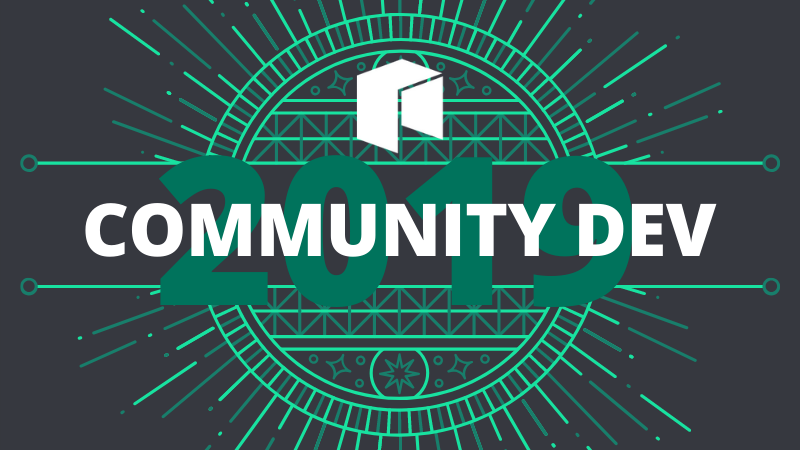
Public blockchain platforms are networks that aim to support the creation of trustless, programmed services called decentralized applications. The most crucial part of a blockchain platform is the underlying protocol; a decentralized network of nodes that reach consensus on new data added to a shared ledger.
For that reason, most development occurring on smart contract platforms today is focused on advancing their respective core capabilities, and this is no exception for Neo. However, it takes more than just a protocol to create a valuable ecosystem. It takes substantial quantities of infrastructure, implemented to do the heavy lifting for those looking to build their own projects on top of the blockchain. These applications in turn are required to attract users, builders, and value to the ecosystem.
Neo is fortunate to enjoy contributions from a diverse and decentralized community of independent developers who participate in this endeavour, each with their own perspectives and priorities. In this article, we will explore the major accomplishments and general direction of Neo’s developer communities over the course of 2019.
COZ
COZ was the first developer community to form in the Neo ecosystem. Launched in 2017 as an international group of developers, COZ is responsible for the creation of numerous open-source tools and applications, including NEOSCAN, neon-js, neo-python, and the Neon wallet.
Through the first few months of 2019, COZ began reorganizing its internal structure and reward system. The changes aimed to encourage developers to pick up higher priority work from within the most valuable projects to the ecosystem.
Early January saw the release of a major neo-python refactor, designed to simplify CLI usage and increase stability for one of the most popular developer tools in the Neo ecosystem. Later in the year, neo-python was further improved with changes that made the chain state produced by the node fully compliant with the core neo-cli client.
Considerable effort was also put into the Neon wallet, the first light wallet client and most popular wallet for Neo users. Following on from the v2 release and redesign in 2018, Neon wallet updates through 2019 have focused on user friendliness and commonly requested features, leading to improvements such as the activity page, transaction exporting, and offline signing.
With core Neo3 development underway, COZ shifted its focus to adapting existing tools such as neon-js and neo-python to work with the future Neo protocol. Members of the team also participated in core development discussions, and followed the Neo3 TestNet launch with its release of the first Neo3 blockchain explorer. Work on the Preview Explorer has continued since its release, with new features to Neo3 such as manifest files being implemented alongside type conversion in November.
NeoSPCC
Neo St Petersburg Competence Center, an experienced team of Russian developers, joined the Neo developer community in mid 2018, and has already established itself as a major contributor to the ecosystem with its flagship project NeoFS. The team also inherited and revitalized the neo-go project started by COZ, and is currently designing Neo Lambda as a platform for distributed stateless computing.
The Neo community had its first look at the design of NeoFS at the Neo DevCon in February, where NeoSPCC demoed a proof of concept version showing the basic storage operations. Further into the year, the team began implementing the payment and data auditing capabilities, culminating in a detailed presentation of NeoFS functionality at Consensus 2019. A full webinar of the NeoFS architecture can be found below.

NeoFS development hit a major milestone this year with the launch of the NeoFS TestNet and Send.NeoFS service, which allows users to easily experiment with the storage services. The platform has been open-sourced, allowing developers to launch their own local NeoFS environments or begin implementing it into applications.
After taking over the neo-go project from COZ, NeoSPCC set to work bringing it up to a MainNet ready standard. During this time, team members also began making contributions to Neo2 and Neo3 core development, but mainly focused on refining the Go node client that would serve as the foundation for its other projects.
Notable milestones for the project include the November update which brought with it RPC capabilities, and a follow-up release that implemented Neo’s dBFT 2.0 consensus mechanism. This marks the first time that an independently developed node implementation has become capable of and compliant with all Neo2 MainNet operations.
NGD Seattle
Neo Global Development Seattle was announced at DevCon 2019 with former Microsoft executive John deVadoss at the lead, and has since become a development community in its own right. The team aims to make Neo the most developer friendly platform by building accessible development tools and reaching new audiences of traditional developers.
The first NGD Seattle tool, the Neo Blockchain Toolkit for VS, was announced at Consensus 2019 in May. The presentation saw deVadoss joined by NGD Shanghai’s Longfei Wang to present the toolkit and Neo Express node, created to make private network deployment and contract development as easy as possible for developers.

Development was headed up by fellow ex-Microsoft veteran Harry Pierson, first previewed at the Neo Community Assembly and with an official release on the Visual Studio Marketplace in October. Pierson joined NNT and Neo core developer Ricardo Prado to give a video introduction to the toolkit, shown above.
NGD Seattle have also assisted with platform outreach, helping Neo become the first blockchain project to join the .NET Foundation, sharing contract development tutorials on the Microsoft Developer Network magazine, and even influencing local regulation in Washington.
NEL
NewEconoLabs was the first Chinese development community to join the Neo ecosystem, providing useful services such as Teemo wallet and NEL Scan, tools like NeoRay, and for-profit services such as NNS. Co-founder Lights Li is also a Neo core developer with substantial contributions to both Neo2 and Neo3.
NEL closed out 2018 with the release of NeoRay, a web-based IDE and debugger for Neo contracts written in C#. The team would later revisit the project in September, adding Python support, bug fixes, and various usability improvements, intended to help increase developer convenience.
In April, NEL released the first version of its chrome extension wallet for Neo, Teemo wallet. The wallet was the second to offer support for the Neo dAPI standard, proposed by the O3 Labs team, which allows applications to connect with existing wallets in a trustless manner.
The group also experimented with new projects, including FutureDAO, a decentralized solution for equity crowdfunding. NEL continued to refine the project through the year, with the goal of facilitating the ‘DAOICO’ continous crowdfunding model proposed by Vitalik Buterin. The platform is designed to provide creators and developers with sustainable project financing over time.
Neow3j
Neow3j is a Java and Android library design to help developers build applications that interact with the Neo blockchain. The project was first introduced at Neo DevCon in February by AxLabs founder Dr Guil Sperb Machado, who highlighted its intention to help Neo connect with Android developers and devices.
Continued development of neow3j by Guil and co-maintainer Claude Müller lead to several major releases throughout the year, including the July v2.0 release with wallet and contract modules, and the August v2.2.0 release which enabled developers to deploy Java contracts to Neo.

In addition to its development efforts, the Switzerland-based team has also engaged with local developers, hosting workshops at events such as the Crypto Valley Conference and by giving lectures and workshops at local Universities.
NEO-ONE
After making its first contribution to the ecosystem with blockchain explorer and wallet NEO Tracker, the Seattle-based team offered an end of year gift to the ecosystem with the release of NEO-ONE, an all-in-one development suite for creating Neo blockchain contracts in JavaScript and TypeScript.
Since then and throughout 2019, the team has displayed two priorities: improving NEO-ONE, and getting developers building. After establishing itself as an approachable choice for developers looking to write Neo contracts, the team began hosting workshops and tutorials, both in the local Seattle area and in other regions, such as the June workshop hosted in collaboration with Neo Colorado.
Following its announcement at the Neo Community Assembly in Shanghai, NEO-ONE released an updated, production-ready version of its suite, allowing developers to write and deploy TypeScript smart contracts to the Neo MainNet.
The update also included refined documentation, courses, and dAPI support to allow applications to connect with existing wallets and their users. Moving forward, NEO-ONE is turning its focus to offering compatibility with Neo3.
NEXT
Initially launched in late 2017 after a merger between the teams behind ExChain and Endorsit, the Neo NEXT community formed with the intention of becoming the largest Neo community for dApp incubation.
In keeping with its goals to be an incubation platform, NEXT launched a dApp competition in December 2018 that attracted 23 participating teams. The competition concluded in April 2019, with 10 entrants receiving finalist prizes and 6 projects receiving unique awards across categories such as creativity, visual design, and commercial potential.
April also saw the release of the beta version of the NeoLine Chrome extension wallet, a light wallet application for Neo with support for the dAPI standard. NEXT would later release updates with new features for the wallet alongside iOS and Android versions in November.
The team also contributed other useful services to the community, including the Blolys block explorer which was later be renamed to NeoTube after the official Neo branding redesign.
NEXT also explored new territory for dApp development on Neo by creating a variety of online live sharing classes detailing Neo technology and project development on the blockchain. By early December, the group had published 11 online courses and 45 technical lessons available in Mandarin.
O3 Labs
The Japan-based O3 Labs is chiefly known for the O3 Wallet, an easy-to-use desktop and mobile wallet for the Neo and Ontology blockchains, but the team also worked behind the scenes to help usher in new capabilities to the Neo ecosystem.
The creation of the Neo dAPI standard was an important step in improving the usability of the Neo blockchain, an initiative that O3 began in 2018 and refined at the start of 2019. The goal was to offer a streamlined user experience for signing transactions from an existing wallet, removing the need for users to provide their private keys to third-party applications.
Following its development through 2019, the dAPI was finalized as NEP-12, a standard interface that can be implemented by all Neo wallet providers so that they may be easily used to connect with dApps. One example is the recently released NeoLogin, which uses the NEP-12 standard to connect with the Neo Economy Store.
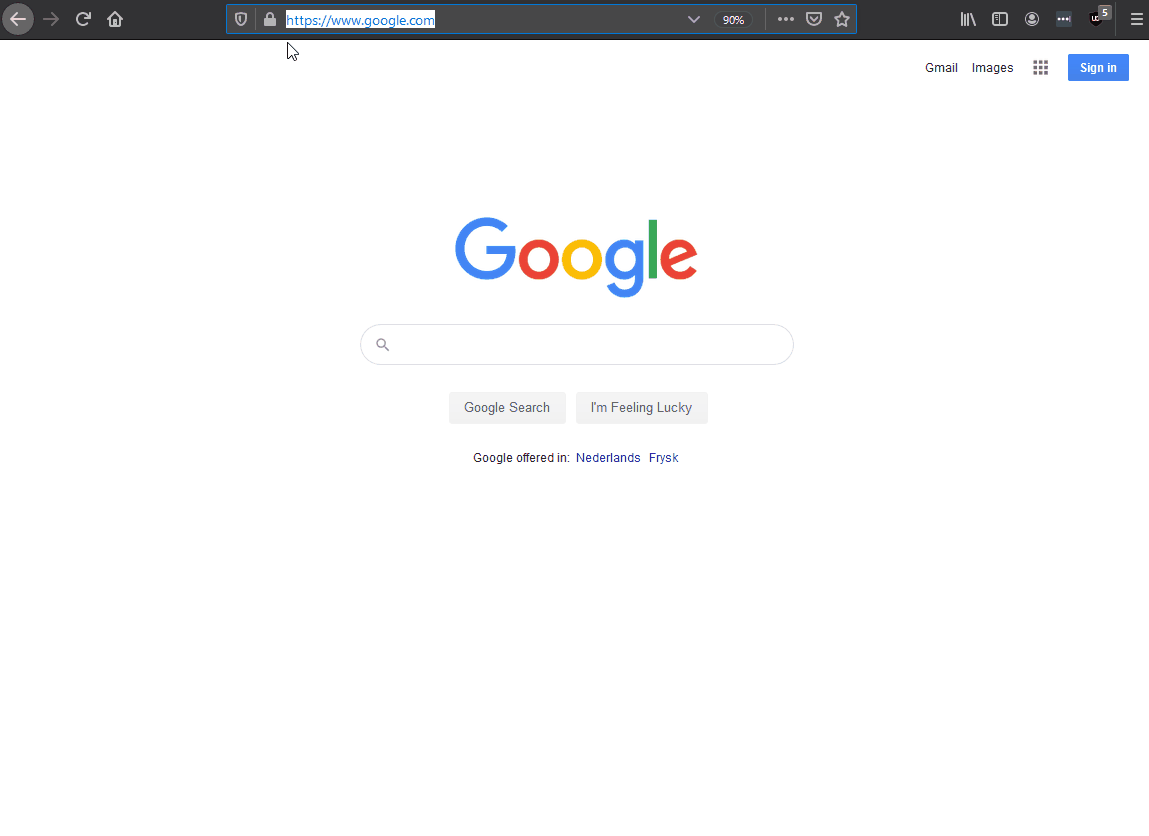
Using NeoLogin to access the Neo Economy Store (Source: NeoLogin)
O3 also experimented with other services in 2019, such as its March release of several components required to bring NFTs to the Neo ecosystem; an NFT explorer, a token minter, and compatibility with its dAPI. The team also launched its own Neo block explorer in May, and continued to refine its wallet application with integration into several Neo applications including Alchemint, Blocklords, and Neo Name Service.
In a search for self-sustainability, O3 Labs explored numerous income generating avenues such as the neod network, an Infura-like Infrastructure-as-a-Service platform, fiat gateways, and the user-friendly O3 Swap. Unable to be certain of its future profitability, the team was ultimately acquired by Bitcoin.com, and will put its considerable talents towards developing mobile applications for the Bitcoin Cash network.
Projects created by O3 Labs for the Neo ecosystem are open-source and will be maintained by members of NGD Shanghai until further notice, meaning existing services such as the O3 Wallet and Explorer will remain operational.
NeoResearch
After being led to Neo by the desire to build a SciChain, a decentralized peer-review system for scientific studies, NeoResearch dedicated itself to all manner of contributions to the Neo ecosystem. These include wide-ranging contributions as Neo core developers and as the creators of developer tools like NeoCompiler Eco.
As core developers, Igor and Vitor Coelho contribute code and research into all aspects of the Neo protocol, but their speciality has been the optimization of dBFT. First created by Erik Zhang as a blockchain-tailored evolution of the classic pBFT, dBFT is a consensus mechanism that provides transaction finality within a single block.
The latest version, dBFT 2.0, proved itself to be stable in the months after the MainNet update, thanks to the integration of a third commit phase and node regeneration strategy. Around this time, NeoResearch also released the first section of the Neo Community Yellowpaper, providing the technical specifications of dBFT 2.0.
The team also continued to make headway academically, releasing papers on Neo technology in October and collaborating with NGD’s Wang Yongqiang in University presentations. Members also pushed out research articles for the Neo community, introducing 2019 developments such as the Oracle system and the decoupling of NeoVM from Neo.
Into 2020, NeoResearch will continue to refine dBFT for its third iteration and seeks to encourage the adoption and experimentation with different BFT consensus mechanisms through the development of its multi-language LibBFT library.
Alienworks
Newly formed in 2019, Alienworks is a new development community founded by Peter Lin, who was previously director of R&D at NGD Shanghai. Since its inception, the community has participated in discussions and launched three projects aimed at promoting the adoption of Neo by users and developers.
The first project is an interactive tutorial, designed as an onboarding tool for developers looking to build smart contracts on Neo. The tutorial is intended to teach new developers how to use Neo to implement their ideas on the blockchain.
Alienworks has published the first version of its second project, a network monitoring system called NeoNodes. This system is hoped to provide developers with a picture of available RPC nodes in the Neo ecosystem, which can be used to remotely obtain data from the blockchain or to relay transactions.
Finally, the team is also researching privacy solutions for use in the Neo ecosystem. Chiefly concerned with smart contract privacy and other privacy applications, Alienworks is exploring technologies such as zero-knowledge proofs and homomorphic encryption, which can be employed for these use cases.
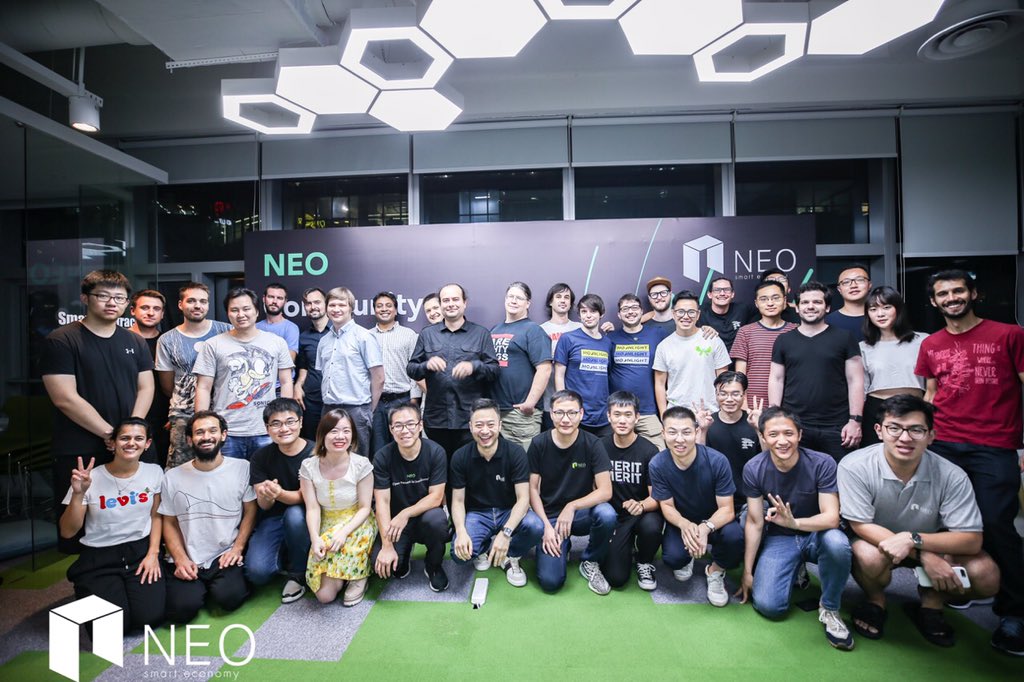
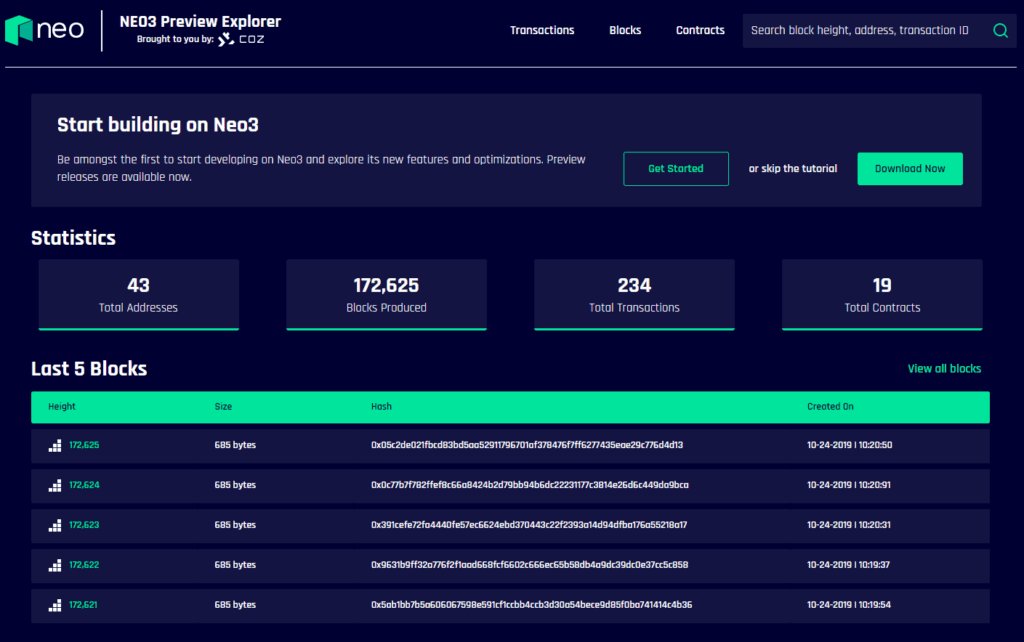

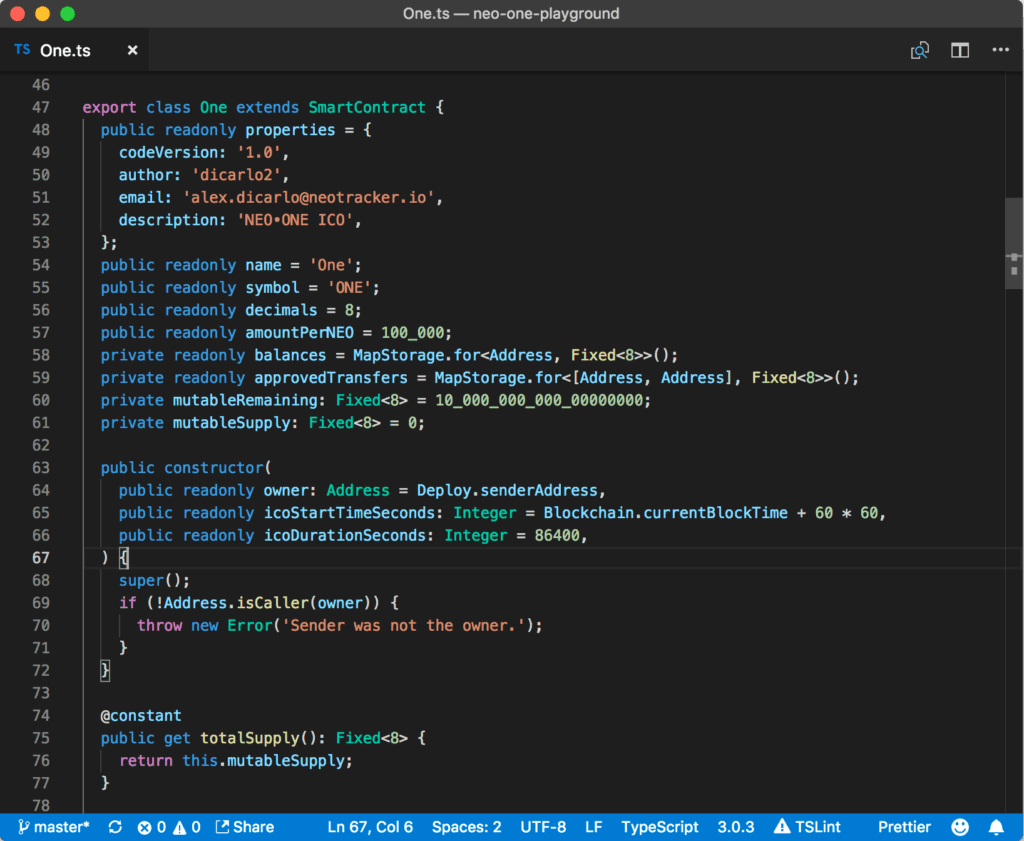






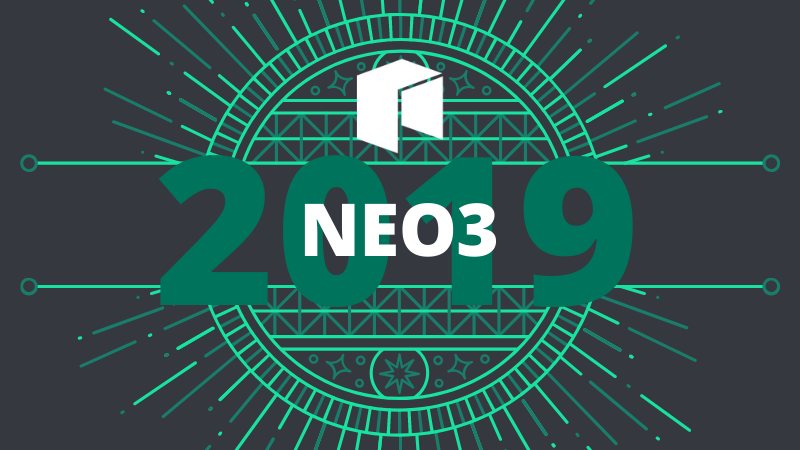
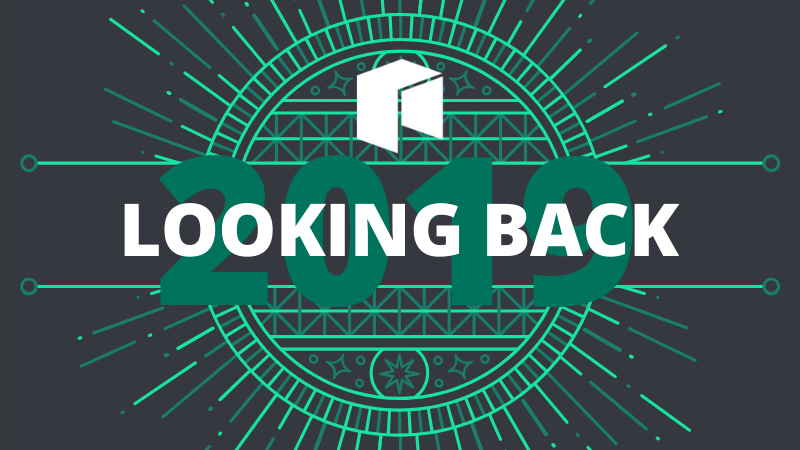
About The Author: Brett Rhodes
Brett is a blockchain enthusiast and freelance writer who originally began producing content for the gaming & eSports industries. Now he spends most of his time contributing in the Neo ecosystem.
More posts by Brett Rhodes